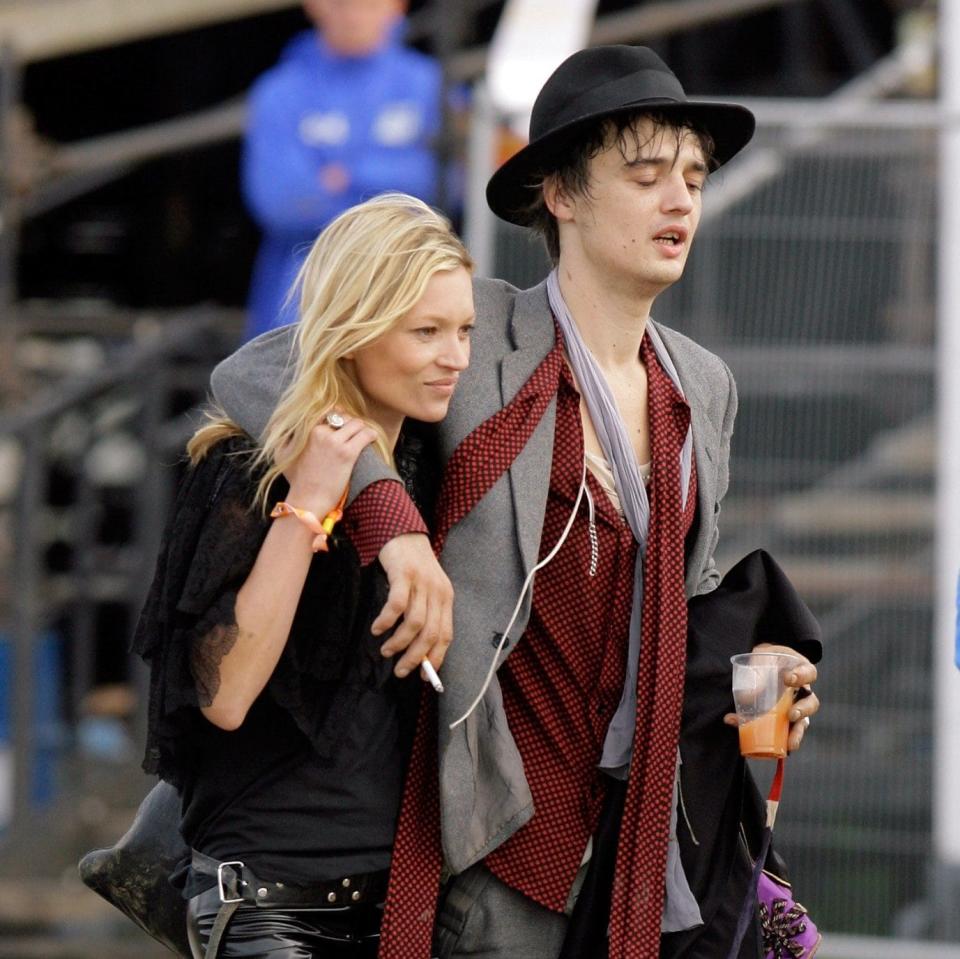Libertine Peter Doherty's tell-all memoir A Likely Lad is rock'n'roll excess at its most depressing

- Oops!Something went wrong.Please try again later.
Barely five minutes after Peter Doherty had returned from the gents during a promotional interview at the deeply conservative Carlton Club, in London, the associate editor of the New Musical Express was made aware of a pressing matter requiring his urgent attention. In a display that spoke of the singer’s stark disregard for the niceties of public life, a spent syringe had been left on the floor in one of the toilet’s cubicles. The letters “QPR”, the football club Doherty supports, had been daubed on the wall in human blood.
The fact that The Likely Lad, the 43-year-old’s warts’n’more ghost-written autobiography, somehow manages to omit this striking story is surely testament to the overwhelming chaos of Doherty’s life. Despite international success with The Libertines and Babyshambles – the latter a group of such ramshackle construction as to make the former sound like the LSO – his world was a place of addictive drugs, frequent violence, arrests, imprisonment, insolvency, tabloid intrusion, destitution and God knows what else.
Never mind the moral ambiguity of sharing the rock’n’roll high-life through the pages of a tell-all memoir, this is history as squalor.
Pick a page, any page. Despite advice from Keith Richards that the key to a successful drug habit was to inject “good quality stuff, pharmaceutical stuff” into the surface of the skin, Doherty’s heroin use inevitably reached the point at which he was “getting a lot of abscesses and veins were just collapsing”. Elsewhere, the singer “fell asleep on the motorway hard shoulder on my way to Heathrow in my Jag… I was woken up, with a crack pipe in mouth, by a policeman banging on the window.” In an incident that saw him imprisoned for burglary, he “started shouting and then booted the door in” of a flat in which he mistakenly believed band mate Carl Barat was hiding.
On he goes, like a Duracell bunny who’s fallen in with a bad crowd. The first night of Doherty’s eventful romance with Kate Moss “was carnage.” His second spell in Pentonville saw him “[get] these pills pushed under the door of my cell, and I overdosed on whatever they were.”

Despite the admission that “it was tricky, really, thinking about how you get a band to function at the same time as being in active addiction”, the defiant revelation that the singer believed himself to be “in a raging war against the industry to prove… I could get music out there and make a living from it and not have to play by their rules of having to go to rehab” implies that his deranged dependency was not so much an illness as an ideology.
In a book as reliably haphazard as this, it is perhaps fitting that the question of why the reader should care about any of this stuff is only addressed in a footnote, in which the producer Stephen Street opines that Peter Doherty “is up there with Morrissey as one of the greatest poets I’ve ever worked with.” The Libertines’ visceral connection with their audience cannot, and should not, be denied. The trouble is, recounted here, it does not seem to be much understood, or even acknowledged. Instead, everything is a blur. Even the death of his friend Amy Winehouse is dispensed with in the space of two paragraphs.
In other words, it’s a mess. The reason Doherty’s ruinous lifestyle “worked” within the confines of three-minute songs is because music can make even the most dreadful things seem exotic and exciting. Over the course of an undercooked book, however, the same experiences are often degrading, and sometimes boring. Despite the exhaustive accounts of drug taking, at no point is the reader told why the narrator finds the effects of heroin or crack cocaine so hard to live without. There are no vivid insights about creativity, or art, or the motivation to write songs. Amid the flurry of major and minor events, the what is granted preferential treatment over the why.
Given that Peter Doherty once tried “to batter” a bandmate who told him that he couldn’t handle his drugs, it is perhaps surprising that he doesn’t write well about them either. By the end of the parched expanse of The Likely Lad, the reader will not be shocked to learn that the title of his biggest hit is Can’t Stand Me Now.
A Likely Lad by Peter Doherty with Simon Spence is published by Constable at £20. To order your copy for £14.99, call 0844 871 1514 or visit Telegraph Books

